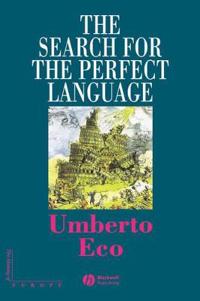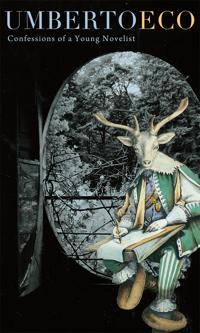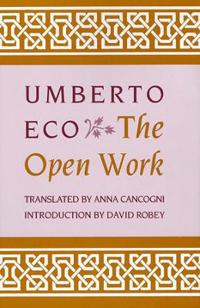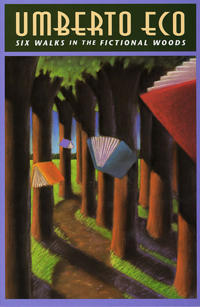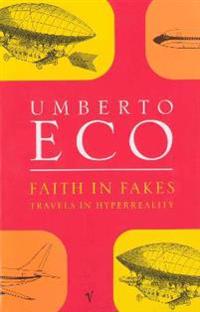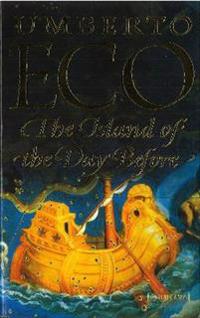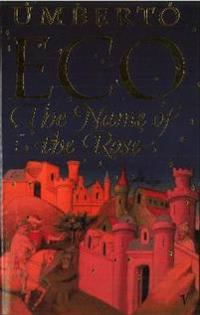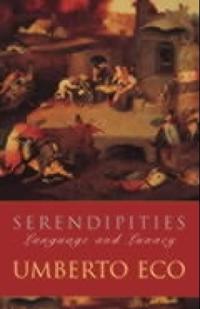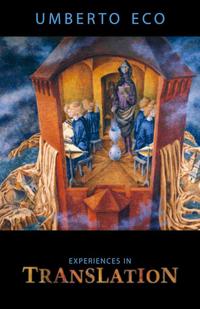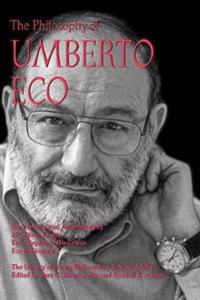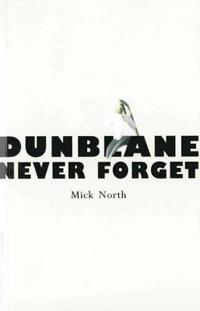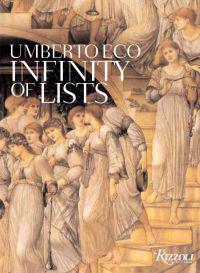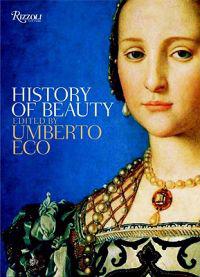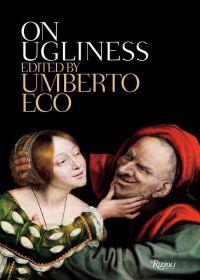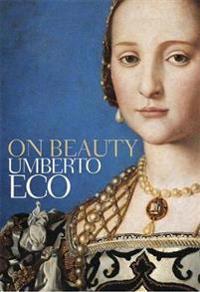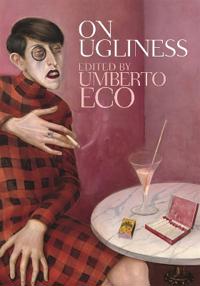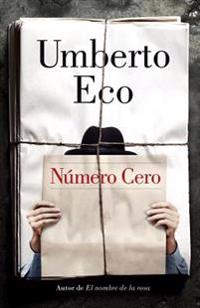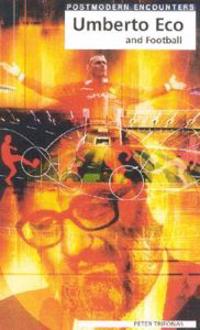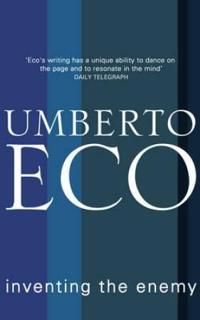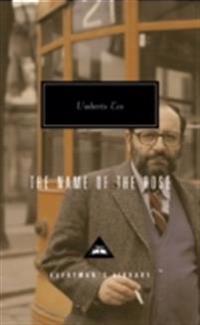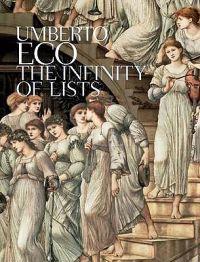The Search for the Perfect Language (Häftad)
avUmberto Eco
ISBN: 9780631205104 - UTGIVEN: 199707The idea that there once existed a language which perfectly and unambiguously expressed the essence of all possible things and concepts has occupied the minds of philosophers, theologians, mystics and others for at least two millennia. This is an investigation into the history of that idea and of it[...]
Confessions of a Young Novelist (Inbunden)
avUmberto Eco
ISBN: 9780674058699 - UTGIVEN: 201104Umberto Eco published his first novel, The Name of the Rose, in 1980, when he was nearly fifty. In these "confessions," the author, now in his late seventies, looks back on his long career as a theorist and his more recent work as a novelist, and explores their fruitful conjunction. He begins by ex[...]
The Open Work (Häftad)
avUmberto Eco
ISBN: 9780674639768 - UTGIVEN: 198907Essays discuss poetry, communication, television, form, aesthetics, bad taste, and art
Six Walks in the Fictional Woods (Häftad)
avUmberto Eco
ISBN: 9780674810518 - UTGIVEN: 199509In this book, we accompany Umberto Eco as he explores the intricacies of fictional form and method. Using examples ranging from fairy tales and Flaubert, Poe and Mickey Spillane, Eco draws us in by means of a novelist's techniques, making us his collaborators in the creation of his text and in the i[...]
The name of the rose (Pocket)
avUmberto Eco
ISBN: 9780749336462 - UTGIVEN: 1994-01Den lærde franciscaner William fra Baskerville og hans elev Adso befinner seg i et benedictinerkloster i Italia i år 1327. Hver dag i en uke finner man en myrdet munk, og William må løse klosterets gåte. Sentralt i gåten står klosterets mektige og hemmelighetsfulle bibliotek. William samler b[...]
Faith in Fakes (Häftad)
avUmberto Eco
ISBN: 9780749396282 - UTGIVEN: 199505The author of "The Name of the Rose" considers a wide range of topics, from "Superman" and "Casablanca", Federico Fellini and Michelangelo Antonioni, Jim Jones and mass suicide, and Woody Allen, to pop festivals and football, and not least the social and personal implications of tight jeans.[...]
Island of the Day Before (Häftad)
avUmberto Eco
ISBN: 9780749396664 - UTGIVEN: 1996-10Set in the 17th century, in Italy, France and on the high seas, this is a tale of medieval legends and dastardly deeds, mixed with portions of exploration literature. Roberto, a young nobleman, waits alone on a Pacific island, separated from the island beyond: the island of the day before.[...]
Name of the Rose (Häftad)
avUmberto Eco
ISBN: 9780749397050 - UTGIVEN: 199211Set in Italy in the Middle Ages, this is not only a narrative of a murder investigation in a monastery in 1327, but also a chronicle of the 14th century religious wars, a history of monastic orders, and a compendium of heretical movements.[...]
Serendipities (Storpocket)
avUmberto Eco
ISBN: 9780753808788 - UTGIVEN: 200002SERENDIPITIES is an iconoclastic, dazzlingly erudite and witty demonstration, by one of the world's most brilliant thinkers, of how myths and lunacies can produce historical developments of no small significance. In Eco's words, 'even errors can produce interesting side effects'. Eco's book shows ho[...]
Experiences in Translation (Häftad)
avUmberto Eco
ISBN: 9780802096142 - UTGIVEN: 200803In this book Umberto Eco argues that translation is not about comparing two languages, but about the interpretation of a text in two different languages, thus involving a shift between cultures. An author whose works have appeared in many languages, Eco is also the translator of Gerard de Nerval's S[...]
The Philosophy of Umberto Eco
ISBN: 9780812699623 - UTGIVEN: 2017-05The Philosophy of Umberto Eco stands out in the Library of Living Philosophers series as the volume on the most interdisciplinary scholar hitherto and probably the most widely translated. The Italian philosopher's name and works are well known in the humanities, both his philosophical and literary w[...]
On Beauty (Häftad)
avUmberto Eco
ISBN: 9780857050205 - UTGIVEN: 2010-09Sumptuously illustrated and fascinatingly written - a vast store of wisdom about the nature of beauty itself.[...]
On Ugliness (Häftad)
avUmberto Eco
ISBN: 9780857051622 - UTGIVEN: 201109Beauty and ugliness are two sides of the same coin; by ugliness we usually mean the opposite of beauty and we often define the first in order to understand the nature of the second. But the various depictions of ugliness over the centuries are richer and more unpredictable than is commonly thought. [...]
Numero Cero (Häftad)
avUmberto Eco
ISBN: 9781101912478 - UTGIVEN: 2015-05" Los perdedores y los autodidactas siempre saben mucho mas que los ganadores. Si quieres ganar, tienes que concentrarte en un solo objetivo, y mas te vale no perder el tiempo en saber mas: el placer de la erudicion esta reservado a los perdedores ."
Con estas credenciales se nos presenta Colonn[...]Umberto Eco and Football
ISBN: 9781840462807 - UTGIVEN: 2001-09Best known for postmodernist fiction like 'The Name of the Rose', Umberto Eco, the Sherlock Holmes of semiotics, is constantly blurring the boundaries between high and low culture. Here we see football as a metaphor, a motif and a vehicle for interpreting the human fascination with ideals.[...]
The Notebook (Häftad)
avJose Saramago, Umberto Eco
ISBN: 9781844677016 - UTGIVEN: 2011-04Provocative and lyrical, The Notebook records the last year in the life of Jose Saramago. In these pages, beginning on the eve of the 2008 US presidential election, he evokes life in his beloved city of Lisbon, revisits conversations with friends, and meditates on his favorite authors. Precise obser[...]
This is Not the End of the Book (Inbunden)
avJean-claude Carrière, Umberto Eco
ISBN: 9781846554513 - UTGIVEN: 2011-05-05These days it is almost impossible to get away from discussions of whether the 'book' will survive the digital revolution. This book is the transcription of a long conversation between the two men in which they discuss a vast range of subjects, from what can be defined as the first book, to the idea[...]
Inventing the Enemy (Inbunden)
avUmberto Eco
ISBN: 9781846555039 - UTGIVEN: 201209Covers various topics on which the author has written and lectured over the years, from the discussion of ideas that have inspired his novels - exploring lost islands, mythical realms, and the medieval world in the process - to a disquisition on the theme that runs through his novel, "The Prague Cem[...]
The Name of the Rose (Inbunden)
avUmberto Eco
ISBN: 9781857152999 - UTGIVEN: 200610Who is killing monks in a great medieval abbey famed for its library - and why? Brother William of Baskerville is sent to find out, taking with him the assistant who later tells the tale of his investigations. Eco's celebrated story combines elements of detective fiction, metaphysical thriller, post[...]
The Infinity of Lists (Inbunden)
avUmberto Eco
ISBN: 9781906694821 - UTGIVEN: 2009-11In the history of Western culture we find lists of saints, ranks of soldiers, catalogues of grotesque creatures or medicinal plants, and hordes of treasure. This infinity of lists is no coincidence: a culture prefers enclosed, stable forms when it is sure of its own identity, while when faced with a[...]

